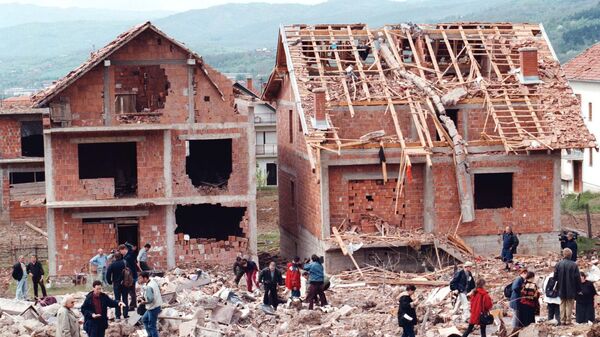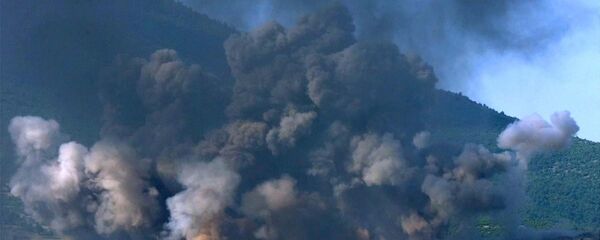The year 2019 marks the 20th anniversary of the NATO airstrikes against the Federal Republic of Yugoslavia (FRY), which then included the territories of Serbia and Montenegro, in 1999. The bombing followed an armed confrontation between the ethnic-Albanian Kosovo Liberation Army (KLA), which had supported Kosovo's independence since the 1990s, and the Serbian military and police. Lazarevic, who was the commander of the FRY Third Army Corps and the Pristina Corps, recalled that not only NATO forces killed Serbian military personnel and civilians 20 years ago, but "they are killing us now" because the consequences of the use of depleted uranium bombs by the US-led NATO forces were "catastrophic" across Serbia.
READ MORE: Commission Finds NATO Bombs Continue to Kill Serbs 19 Years After 1999 Strikes
"It is difficult to accept this state of affairs where you cooperate with those who violently destroyed you yesterday in the same military area … It is hard for me as a person, who protected the country from NATO criminals, to accept such cooperation. However, I am aware of the fact that this is a political decision and the country is trying to preserve its military neutrality and interact with the alliance within the framework of the Partnership for Peace program. Maybe, it is useful for the country and people. But for me, as a serviceman, it is a difficult situation," Lazarevic said.
Lazarevic continued by noting that a lot of his comrades in arms have died over the past 20 years due to exposure to depleted uranium which was used in NATO’s weapons. He recalled that a lot of healthcare and defense analytics and experts from across the world believed that the use of radioactive weapons by NATO in Yugoslavia had led to a tragedy which was larger than the fallout from the atomic bombing of Hiroshima in Japan.
The military operation was conducted without the approval of the UN Security Council and on the basis of the Western countries' allegations that FRY authorities had carried out ethnic cleansing in Kosovo and provoked a humanitarian catastrophe there.
Serbian President Aleksandar Vucic has said that the use of depleted uranium weapons during the NATO operation is behind the increase in the number of cancer patients in the Balkan nation. Moreover, Belgrade established a special commission to investigate the consequences of the 1999 NATO bombings for the environment and health of the Serbs.




